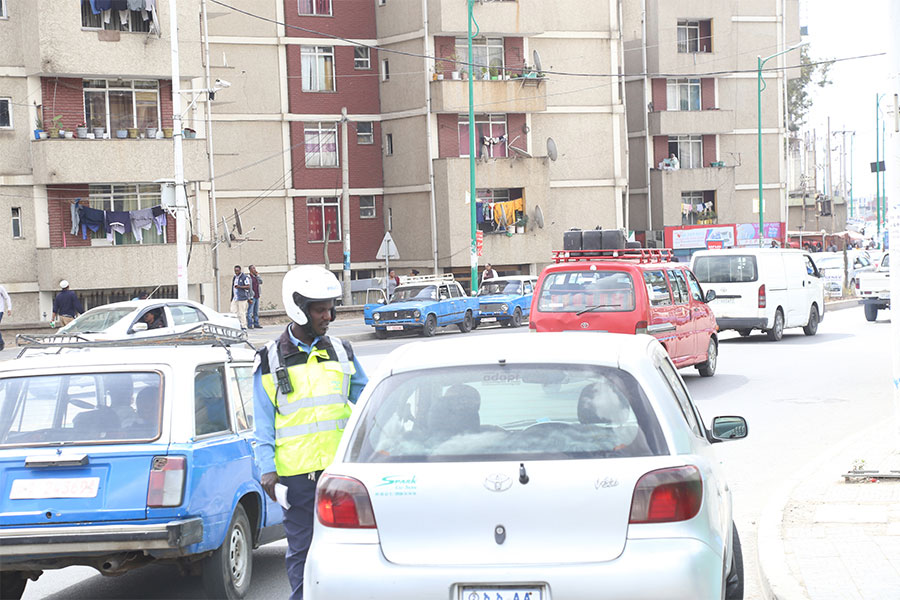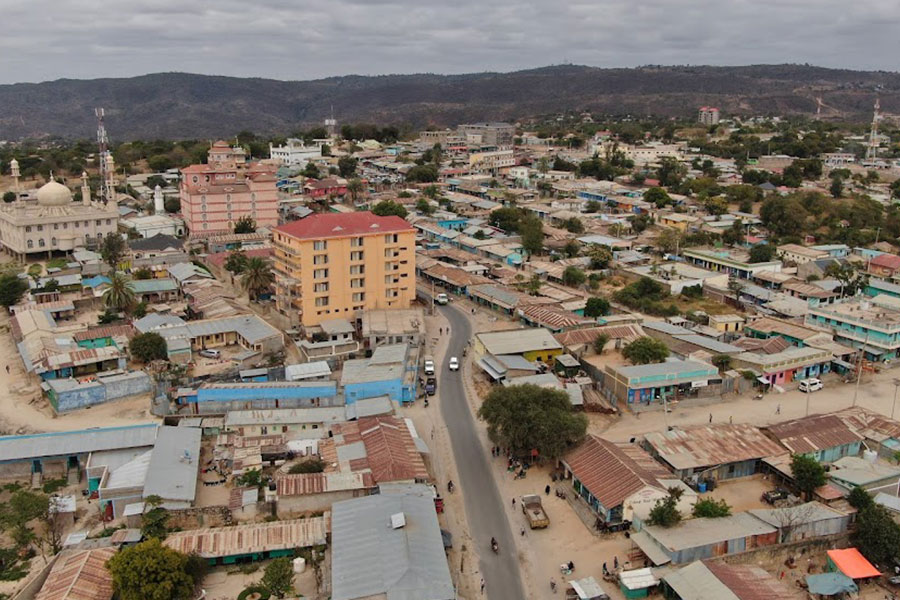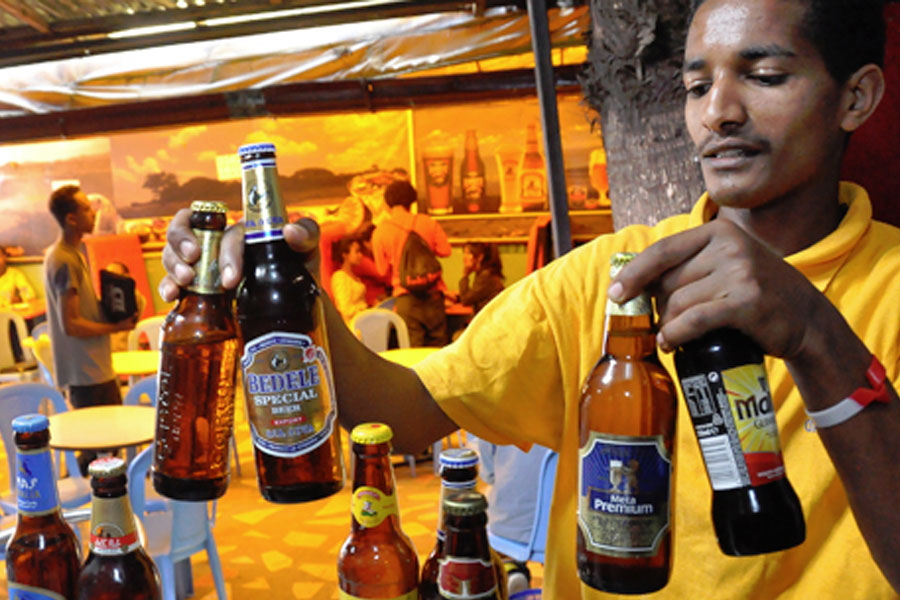
Fortune News | Apr 29,2023
Oct 28 , 2023
By Selome Getachew
Ethiopia confronts an intriguing policy paradox in generating foreign currency. It is in a whirlwind of a policy dilemma. The federal authorities have brewed a 3.2 billion dollar trade deficit in the first quarter of 2023 for lack of imaginative policies. They should find this a bitter cup to swallow, argued Selome Getachew(sol_get@yahoo.com), a certified manager and Bridge Investment Consultancy's founding managing director.
Ethiopia confronts an intriguing paradox in foreign currency generation policy. It witnessed a sobering 3.2 billion dollar trade deficit in the opening quarter of 2023, a trend no exception for over a decade. Its export potential in primary goods was considered immense, yet it barely scratches the surface of its international trade aspirations, mainly serving domestic consumption.
The populace, approximately 70pc, leans heavily on agriculture for substance, making it the cornerstone of the country's economic structure. Contributing a significant 34pc to its GDP, this sector beams with potential. The aromatic beans of coffee, the prized export, remain an essential source of foreign currency. A recent study commissioned by USAID revealed an estimated 8.27 million bags of 60Kg were produced, registering a modest growth of 0.2pc year-over-year (YoY).
Globally revered as a staple for productivity, coffee is second only to oil in the trading hierarchy. Birthed in the Ethiopian highlands, coffee and diverse bean varieties like Green Mung Beans and Sesame seeds are central in global trade circles. Yet, challenges abound.
The Ethiopian export mechanism appears to be in a stranglehold of dilemma, leading to a perpetually deepening trade chasm. A laser focus on ramping up foreign currency seems to overshadow other pressing matters.
The National Bank of Ethiopia (NBE) has thrown a series of directives into the mix, with its authorities hoping to recalibrate the foreign currency equilibrium. A quintessential example is the recent directive, where the central bank tweaked the foreign currency usage. Exporters can retain 50pc of forex earnings, a ratio improved from the 30pc imposed much of last year.
The aftermath witnessed a flurry of activities. Exporters offloaded goods in the export market at rock-bottom prices, pinning hopes on future gains through imports. A new cohort thronged the licensing bureaus, causing a surge in coffee exporters. The ripple effect was noticeable - while local coffee prices skyrocketed, the global market declined.
The banking industry, fully aware of the risks tied to the export domain, seems fixated on foreign currency earnings, often at the cost of prudent decision-making. Massive loans, constantly running into billions, are earmarked for the export sector. The unintended consequence is diversion and misappropriation, exacerbating the crisis.
While the coffee export landscape struggles with its inherent limitation, policymakers at the federal government have loftily set their sights on a two-billion-dollar export ambition set for 2022/23.
However, this may be a bridge too far, given the current global prices for coffee. Several factors hobble the coffee momentum - the absence of improved seeds, disease outbreaks and sub-optimal post-harvest practices, and above all, coffee's uncontrolled local market price. Climate anomalies, in particular, have been a thorn in the side of coffee growers. As erratic rain patterns cause devastation, many farmers are veering towards khat cultivation, lured by its short-term economic perks, albeit with long-term environmental and public health repercussions.
Despite such an intricate backdrop, there is a conspicuous absence of a cohesive long-term vision from policymakers. Their playbook seems overwhelmingly centred on beefing up foreign currency coffers. Regulators at the Coffee & Tea Authority, in partnership with those at the Central Bank, rolled out the "Export Coffee Contract Administration" in early 2020, anchoring a minimum contract entry price. Add to this a directive issued in the same year, clamping down on coffee stockpiling. A relentless chase for foreign currency, often at the expense of durable sectoral growth, becomes the order of the day.
Policymakers are in a reactive mode, constantly responding to foreign currency riddles. The pressing need of the hour should be a paradigm shift - from quick fixes to a comprehensive and long-term strategy. The domestic economy is an inflexion point. The export sector can be a beacon for the broader economy. Policymakers are unlikely to chart a path of economic triumph short of sustainable growth blueprints, encouraging innovation, and promoting collaboration.
PUBLISHED ON
Oct 28,2023 [ VOL
24 , NO
1226]


Fortune News | Apr 29,2023

Radar | May 03,2025

Fortune News | May 07,2022

Radar | Apr 16,2022

Radar | Jun 21,2025

News Analysis | Mar 04,2023

Radar | Jun 30,2024

Radar | Nov 02,2019

Fortune News | May 29,2021

Radar | Sep 08,2019

Photo Gallery | 170244 Views | May 06,2019

Photo Gallery | 160484 Views | Apr 26,2019

Photo Gallery | 150111 Views | Oct 06,2021

My Opinion | 136236 Views | Aug 14,2021





Dec 22 , 2024 . By TIZITA SHEWAFERAW
Charged with transforming colossal state-owned enterprises into modern and competitiv...

Aug 18 , 2024 . By AKSAH ITALO
Although predictable Yonas Zerihun's job in the ride-hailing service is not immune to...

Jul 28 , 2024 . By TIZITA SHEWAFERAW
Unhabitual, perhaps too many, Samuel Gebreyohannes, 38, used to occasionally enjoy a couple of beers at breakfast. However, he recently swit...

Jul 13 , 2024 . By AKSAH ITALO
Investors who rely on tractors, trucks, and field vehicles for commuting, transporting commodities, and f...

Oct 4 , 2025
Eyob Tekalegn (PhD) had been in the Governor's chair for only weeks when, on Septembe...

Sep 27 , 2025
Four years into an experiment with “shock therapy” in education, the national moo...

Sep 20 , 2025
Getachew Reda's return to the national stage was always going to stir attention. Once...

Sep 13 , 2025
At its launch in Nairobi two years ago, the Africa Climate Summit was billed as the f...

Oct 5 , 2025 . By NAHOM AYELE
In Meqelle, a name long associated with industrial grit and regional pride is undergo...

Oct 5 , 2025 . By BEZAWIT HULUAGER
The federal government is set to roll out a new "motor vehicle circulation tax" in th...

Oct 5 , 2025 . By NAHOM AYELE
The Bank of Abyssinia is wrestling with the loss of a prime plot of land once leased...

Oct 5 , 2025 . By BEZAWIT HULUAGER
The Customs Commission has introduced new tariffs on a wide range of imported goods i...